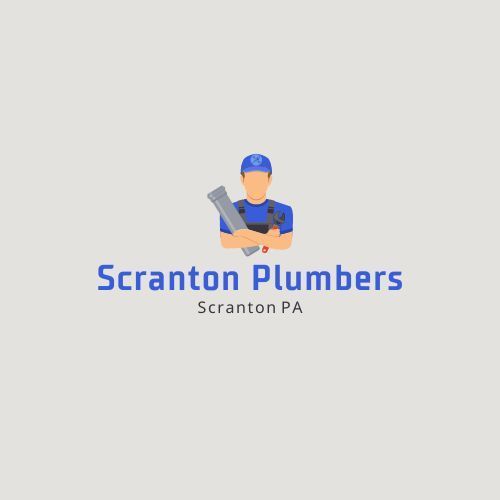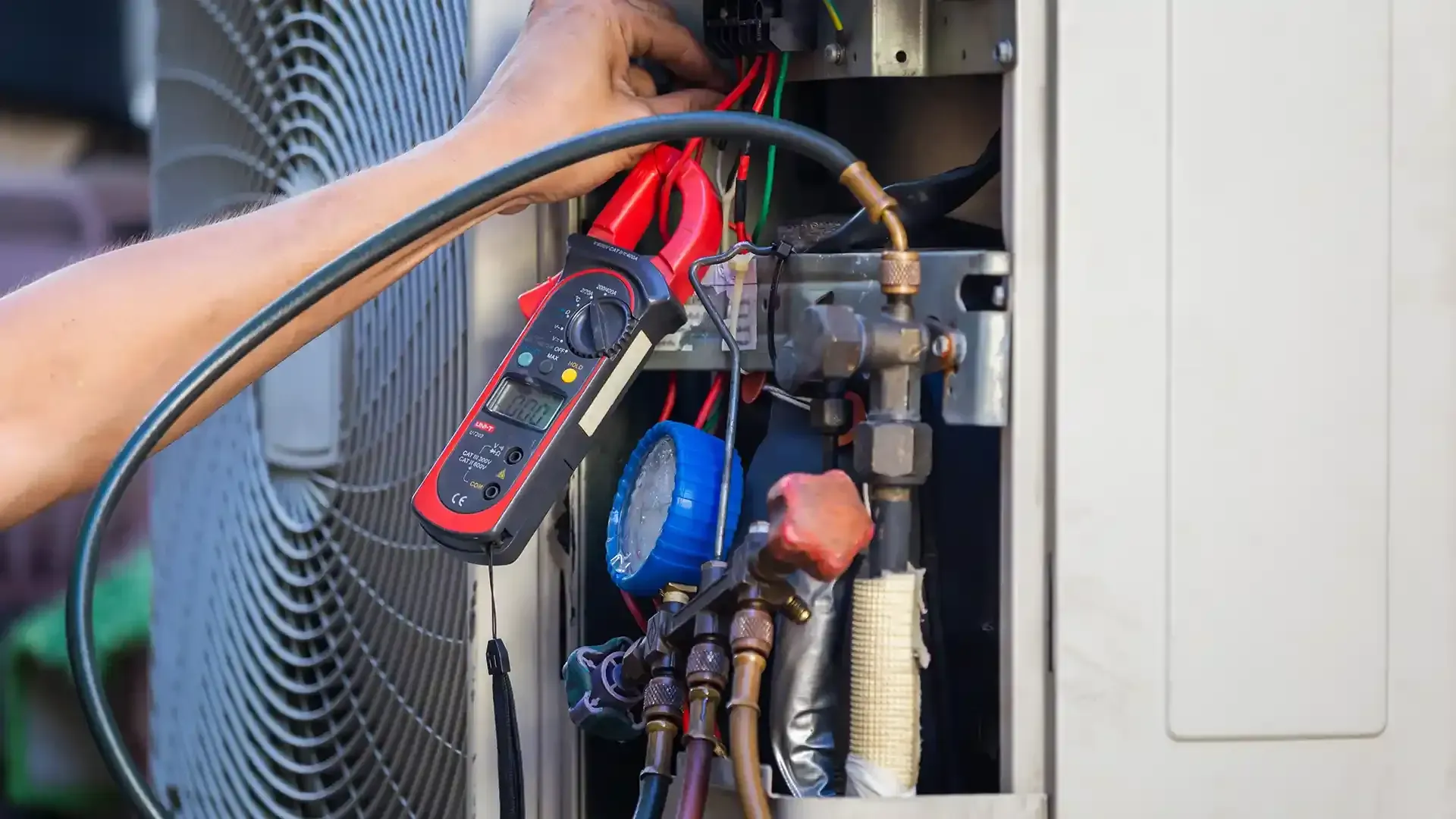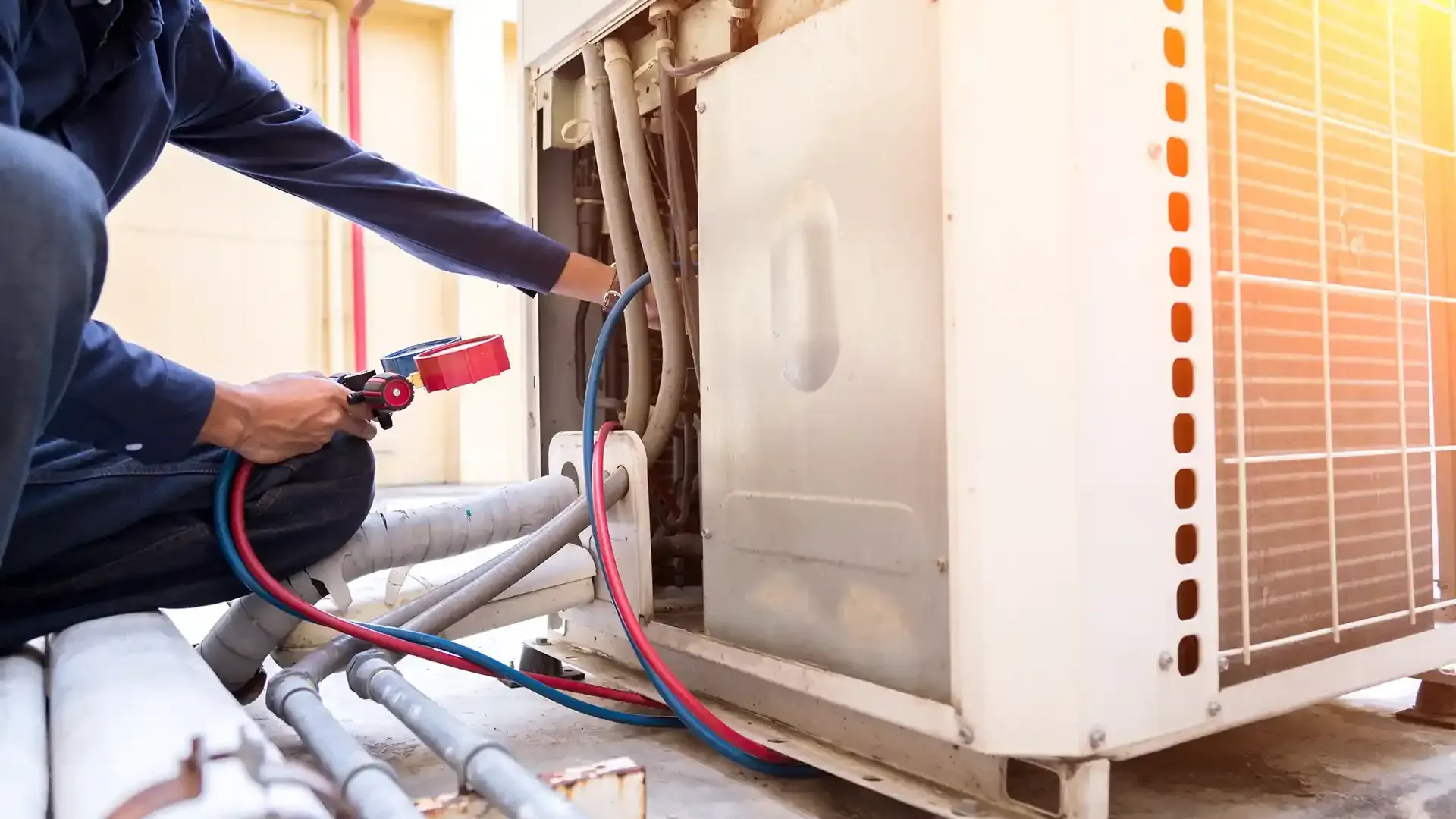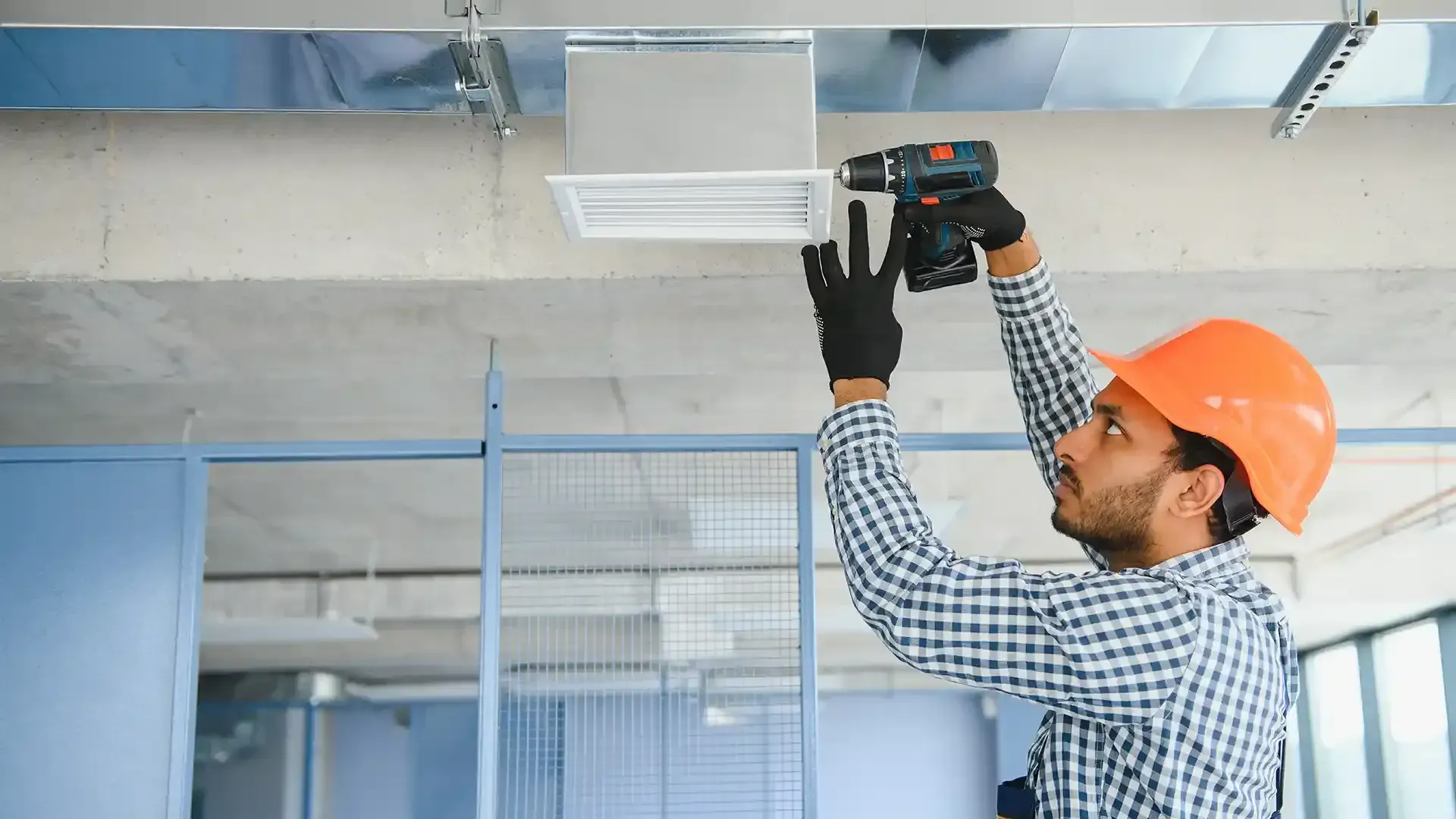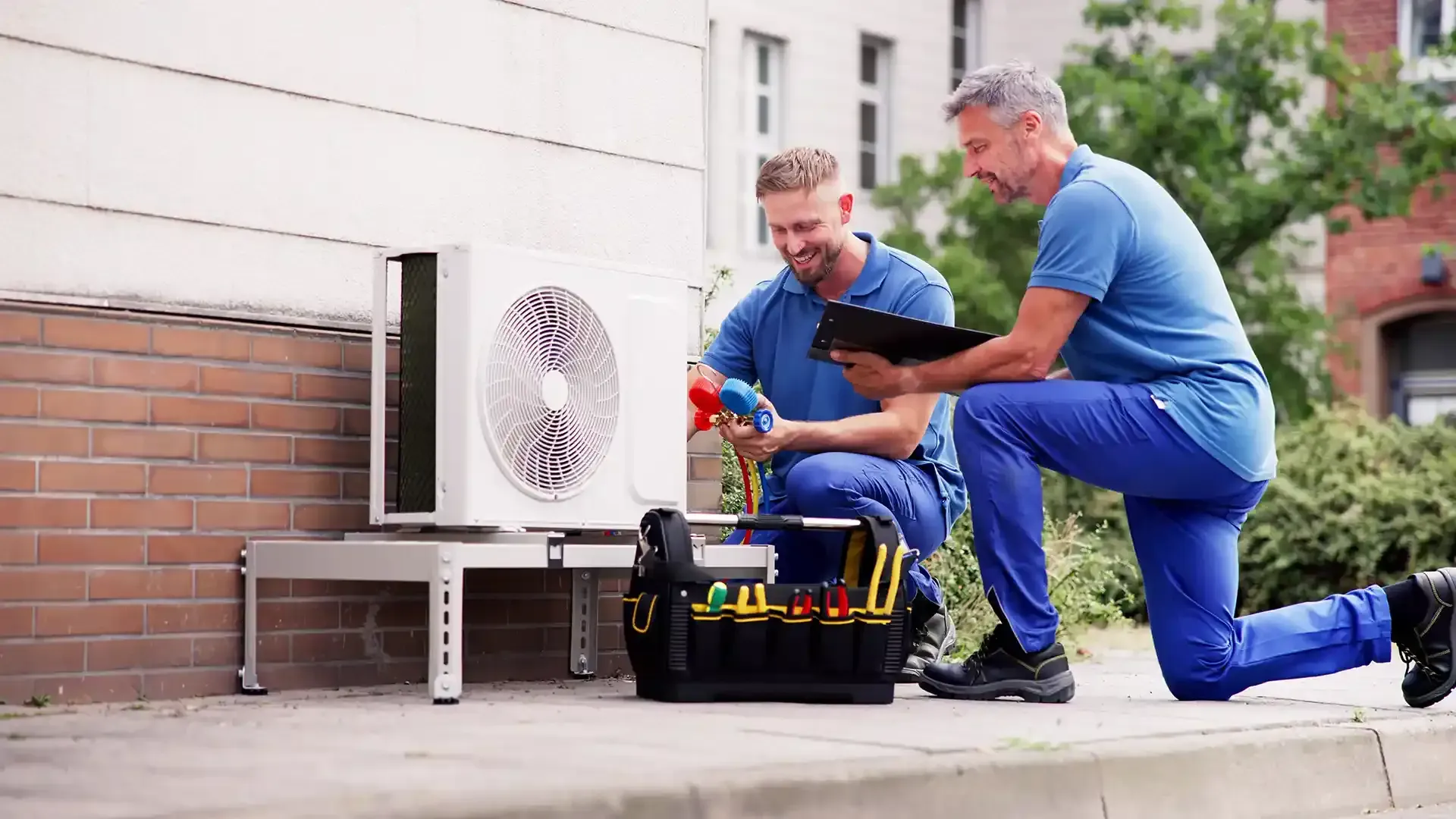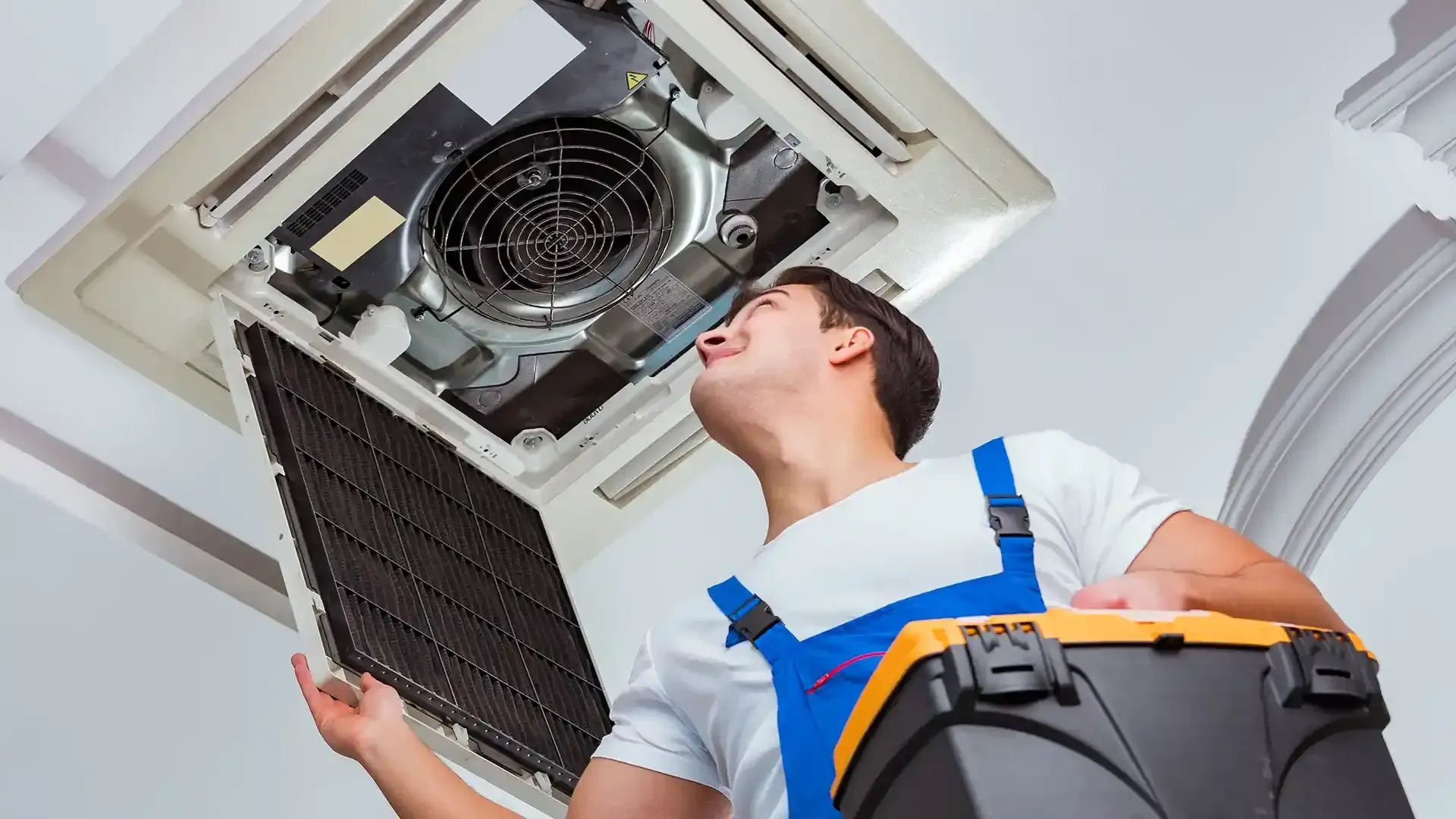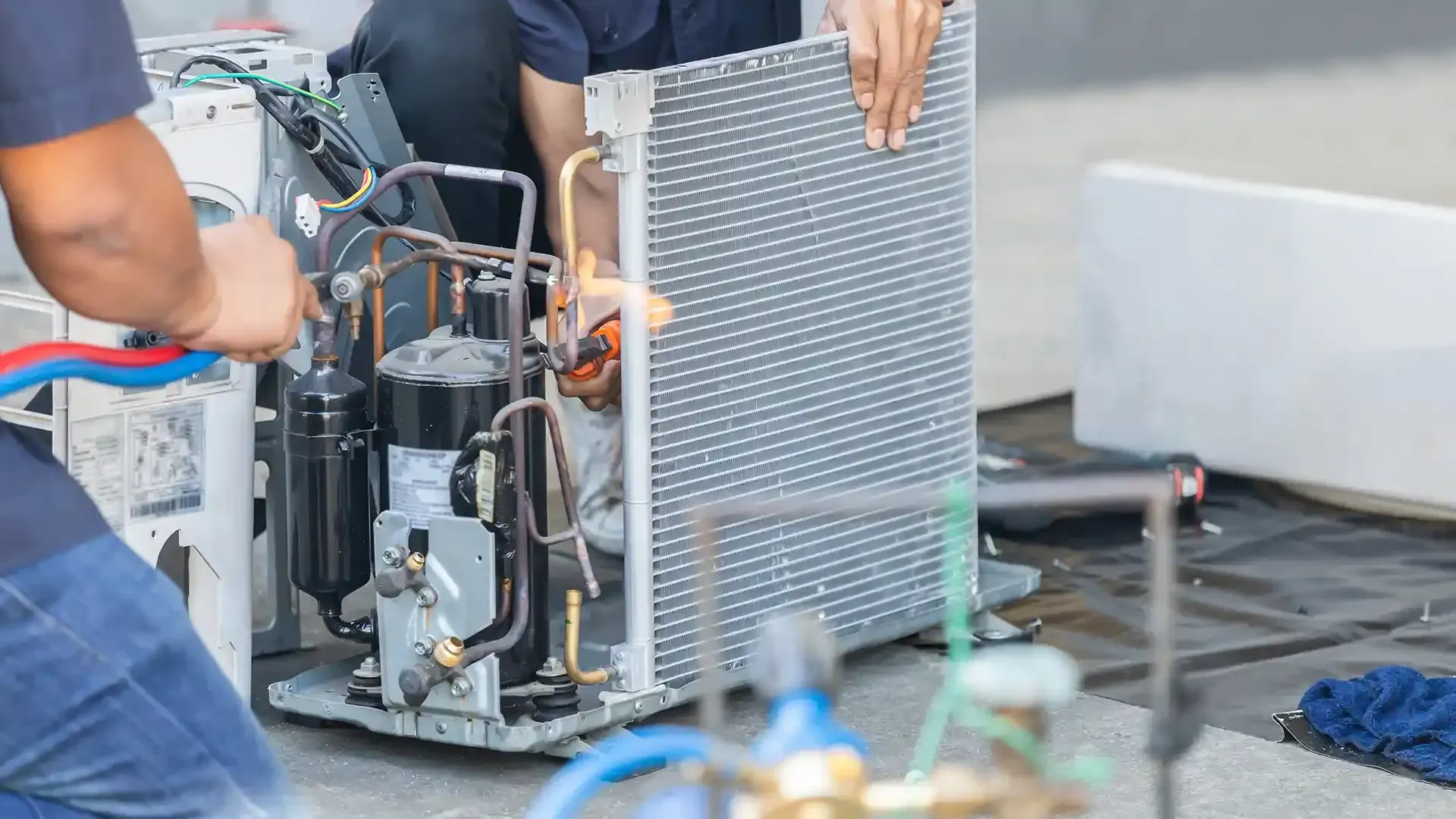Unlocking the Basics: How HVAC Units Work to Keep Your Home Comfortable
Unlocking the Basics: How HVAC Units Work to Keep Your Home Comfortable

Key Takeaways
- HVAC units are essential systems that regulate the temperature, humidity, and air quality in your home, ensuring comfort throughout the year.
- HVAC systems consist of several core components, including compressors, evaporators, and ducts, that work together to heat and cool air.
- Regular maintenance is key to keeping your HVAC system running efficiently and preventing costly breakdowns.
- DIY repairs can lead to more issues down the road; hiring professionals like Plumber Scranton ensures your HVAC system is properly maintained and repaired.
Imagine walking into your home on a scorching summer day, and immediately feeling the refreshing cool breeze of your air conditioner. Or on a chilly winter morning, stepping into a warm, cozy living room. These everyday moments of comfort wouldn’t be possible without your HVAC (Heating, Ventilation, and Air Conditioning) system. But have you ever wondered exactly
how HVAC units work to keep your home comfortable all year round?
In this blog, we’ll dive deep into the mechanics behind HVAC systems, break down their core components, and explore why understanding how they function can help you make informed decisions about maintaining your unit. Whether you’re a new homeowner or just curious, you’ll gain a better understanding of how these systems play a crucial role in your home’s environment.
What Is an HVAC System and How Does It Work?
Heating and Cooling Basics
At the heart of every HVAC system is the goal to either heat or cool your home, maintaining a comfortable temperature. HVAC systems consist of several key parts that work together to achieve this:
- Compressor – The compressor is responsible for circulating refrigerant between the indoor and outdoor units. It compresses the refrigerant, making it hot and high-pressured.
- Evaporator Coil – The evaporator coil absorbs heat from the indoor air, cooling it before it’s blown back into your home.
- Condenser Coil – The condenser coil releases the heat absorbed by the refrigerant from inside your home to the outside environment.
- Ductwork – The ducts transport air throughout your home, delivering cool or warm air to different rooms.
- Thermostat – The thermostat is the control center, regulating the temperature by turning the system on or off as needed.
These components work together to ensure your home stays at the desired temperature, whether it's providing warmth in winter or cooling relief during summer. When you set your thermostat, the system kicks into action, pulling in air from your home, heating or cooling it, and redistributing it back through the ducts.
The Science Behind Cooling and Heating
An HVAC system doesn't create cool air out of nowhere; instead, it removes heat from the air inside your home. The refrigerant in the system absorbs heat as it passes over the evaporator coil, cooling the air that then recirculates into your living space. The heat that was absorbed is then expelled outside via the condenser coil.
Heating functions work differently, depending on the system. Heat pumps, for instance, transfer heat from the outside air to warm your home. In colder climates, systems rely on furnaces that burn fuel or use electricity to produce heat.
Understanding
how HVAC units work gives insight into why maintenance is crucial. A small issue, like a dirty air filter or low refrigerant levels, can throw off this delicate process and cause inefficiencies.
Why Proper HVAC Maintenance Matters
Regular Check-Ups Prevent Major Breakdowns
Without regular maintenance, an HVAC system’s efficiency drops, leading to higher energy bills and a less comfortable home environment. Dirt, dust, and grime can build up in the filters and coils, forcing the system to work harder to achieve the same results. This not only shortens the system’s lifespan but also increases the likelihood of a costly breakdown.
Routine HVAC inspections by professionals like Plumber Scranton can catch small issues before they escalate into major problems. A well-maintained HVAC system will run smoothly, save on energy costs, and avoid inconvenient repairs during extreme weather conditions.
DIY Repairs: A Risky Move
Many homeowners are tempted to troubleshoot HVAC issues on their own, thinking it will save money. However, HVAC systems are intricate and often require specialized knowledge and tools for repairs. A small mistake in DIY repair can lead to bigger problems, including damage to the system, voiding warranties, or even potential safety hazards like electrical fires.
By relying on professional services like Plumber Scranton, you can rest easy knowing that experts with the proper training are handling your system. The peace of mind that comes from knowing your HVAC is in good hands far outweighs the risks of attempting DIY fixes.
How HVAC Systems Impact Your Home's Environment
Indoor Air Quality
HVAC units don’t just regulate temperature—they also play a critical role in managing indoor air quality. The system filters out dust, allergens, and pollutants, ensuring that the air circulating through your home is clean and healthy. This is particularly important for households with children, elderly individuals, or anyone with respiratory issues.
Without regular cleaning and maintenance, the filters and ducts in an HVAC system can become clogged, reducing efficiency and allowing contaminants to circulate in your home. Professional cleaning services can help ensure your system is running smoothly and that your indoor air quality remains high.
Energy Efficiency and Cost Savings
Another important factor in understanding
how HVAC units work is their impact on energy efficiency. A well-maintained HVAC system uses less energy to heat or cool your home, leading to lower utility bills. On the flip side, a neglected system works harder and consumes more power, costing you more in the long run.
Modern HVAC systems are designed with energy efficiency in mind, and upgrading to a more efficient unit can significantly reduce your energy consumption. Even with an older system, simple steps like regular filter changes and scheduling professional tune-ups can help you save money over time.
When it comes to keeping your home comfortable year-round, understanding
how HVAC units work is essential, but maintenance and repair should always be left to the professionals.
Plumber Scranton offers expert HVAC services, including regular inspections, repairs, and system upgrades. We are based in Scranton, Pennsylvania, and you can reach us at 570-243-0180 for all your HVAC needs. Let us help you keep your home comfortable and your HVAC system running smoothly—schedule a service today!
Conclusion
Your HVAC system plays a pivotal role in maintaining a comfortable, healthy home environment. From heating in the winter to cooling in the summer, understanding
how HVAC units work empowers homeowners to make informed decisions about their system’s maintenance and care. While DIY repairs may seem appealing, the complexity of HVAC systems makes professional services the safest and most cost-effective option.
Keep your home comfortable all year round by trusting the experts at Plumber Scranton. With our professional services, you can avoid costly repairs and ensure your system runs efficiently. Call us today at 570-243-0180 to schedule your HVAC maintenance and stay comfortable in every season!
FAQs
Q: How often should I have my HVAC system serviced?
A: It’s recommended to have your HVAC system inspected and serviced at least twice a year—once before the summer cooling season and once before the winter heating season.
Q: Why is my HVAC system blowing warm air when it should be cooling?
A: This could be due to several reasons, including low refrigerant levels, a dirty evaporator coil, or a malfunctioning compressor. Contact a professional technician to diagnose and fix the problem.
Q: How can I improve my HVAC system’s efficiency?
A: Regular maintenance, cleaning or replacing filters, and upgrading to a programmable thermostat can help improve your system’s efficiency and reduce energy costs.
Q: Can I perform HVAC repairs myself?
A: While some simple tasks, like changing air filters, can be done by homeowners, most repairs should be left to professionals. DIY repairs can result in costly damage and safety risks.
CONTACT US TODAY
Send us a message using form below and we'll get back to you right away!
Contact Us
We will get back to you as soon as possible.
Please try again later.

